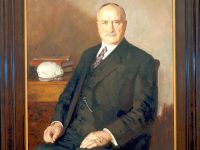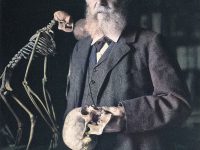Eugene Dubois and the Discovery of the Java Man
On January 28, 1858, Dutch paleoanthropologist and geologist Eugene Dubois was born. Dubois earned worldwide fame for his discovery of Pithecanthropus erectus (later redesignated Homo erectus), or Java Man. Although hominid fossils had been found and studied before, Dubois was the first anthropologist to embark upon a purposeful search for them. Eugene Dubois – Early Years Dubois was born in Eijsden, near Limburg, Netherlands, where his father, Jean Dubois, was an apothecary,…
Read more






